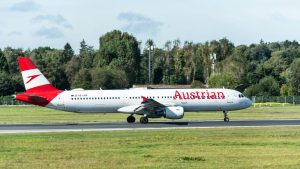Fleet Management Technology: Maximizing Efficiency and Reducing Costs
In today’s competitive business landscape, fleet management has become an essential aspect of any organization’s operations. With the rise of e-commerce and transportation services, companies are increasingly relying on fleets of vehicles to transport goods and services. However, managing these fleets efficiently and effectively is not an easy task. It requires a combination of strategic planning, proper utilization of resources, and advanced technology. This is where fleet management technology comes into play. By leveraging the power of technology, businesses can maximize efficiency and reduce costs in their fleet management operations. In this article, we will delve deeper into the various ways in which fleet management technology can help businesses achieve these goals.
Streamlining Operations with Real-Time Tracking
One of the key benefits of fleet management technology is real-time tracking capabilities. With GPS technology, fleet managers can track the location, speed, and route of each vehicle in their fleet. This allows for better fleet tracking, route mapping, and dispatching of vehicles. With real-time tracking, managers can identify potential delays or diversions and take immediate action to rectify them. This leads to improved delivery times and increased customer satisfaction.
Moreover, real-time tracking also enables fleet managers to monitor drivers’ behavior and performance. Speeding, harsh braking, and other reckless behaviors can be identified and rectified to improve safety on the roads. This not only reduces the risk of accidents but also saves costs on vehicle maintenance and fuel consumption.
Optimizing Routes for Cost Savings
An essential aspect of fleet management is route planning. Traditionally, this has been a manual and time-consuming process. However, with the use of fleet management technology, businesses can optimize their routes to reduce fuel costs and increase efficiency. The technology takes into account factors such as traffic, weather conditions, and distance to determine the most cost-effective route for each vehicle. This minimizes fuel consumption and reduces vehicle wear and tear, leading to significant cost savings in the long run.
Additionally, with optimized routes, businesses can ensure timely deliveries and avoid late fees and penalties. This not only saves costs but also enhances the organization’s reputation and improves customer satisfaction.
Efficient Vehicle Maintenance and Management
Maintaining a fleet of vehicles can be a daunting task, especially for businesses with a large number of vehicles. However, with fleet management technology, this task becomes more manageable. The technology uses telematics, which collects data from each vehicle and delivers it to the fleet management system. This data includes information on vehicle performance, fuel consumption, and maintenance needs.
With this data, fleet managers can schedule preventive maintenance, identify potential issues, and take necessary actions to avoid costly breakdowns. This prolongs the life of vehicles and reduces maintenance costs. Moreover, the technology also assists in managing the entire lifecycle of vehicles in the fleet, from acquisition to disposal, ensuring that each vehicle is utilized to its full potential.
The Power of Data and Analytics
Fleet management technology also provides businesses with valuable data and insights into their fleet operations. This data can be used to make informed decisions, identify areas of improvement, and streamline processes further. With advanced analytics, fleet managers can identify patterns and trends, monitor KPIs, and track performance metrics. This allows for continuous optimization of operations to maximize efficiency and reduce costs.
Reducing Administrative and Paperwork Burden
Traditionally, fleet management involved a significant amount of paperwork and manual processes. This not only consumes time but also increases the risk of human error. With fleet management technology, businesses can reduce their administrative burden and free up valuable human resources for other tasks. The technology automates processes, such as inventory management, vehicle tracking, and reporting, minimizing paperwork and streamlining operations.
Conclusion
In today’s fast-paced business environment, efficiency and cost reduction are crucial for any organization’s success. With fleet management technology, businesses can achieve both these goals. By leveraging robust technology solutions, businesses can optimize fleet operations, reduce costs, and enhance customer satisfaction. It is evident that fleet management technology is a game-changer in the world of logistics and transportation, and businesses that embrace it will gain a significant competitive advantage.








